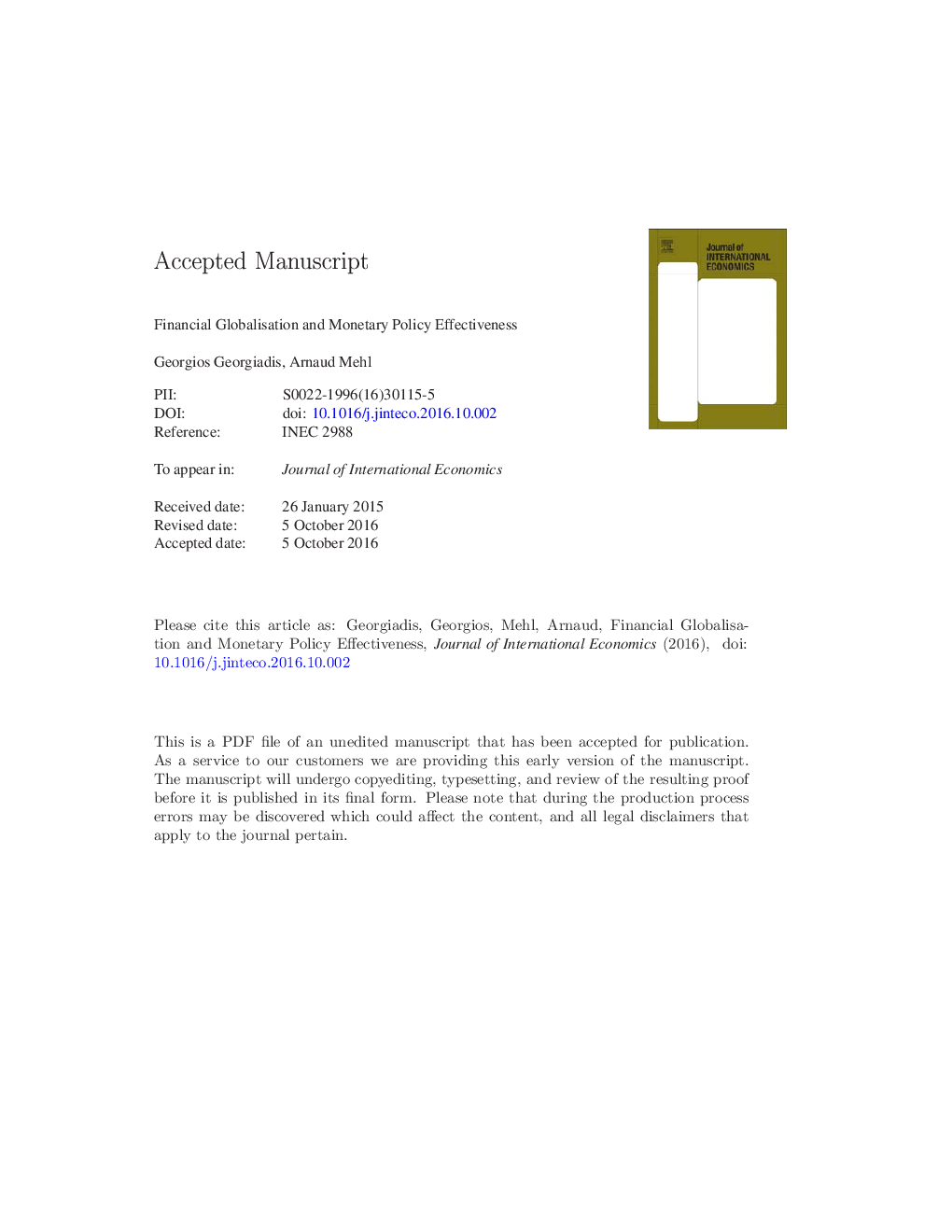| Article ID | Journal | Published Year | Pages | File Type |
|---|---|---|---|---|
| 5100972 | Journal of International Economics | 2016 | 29 Pages |
Abstract
In theory financial globalisation has an ambiguous effect on monetary policy effectiveness. On the one hand, exposure to global financial cycles dampens the output effect of a tightening in monetary policy in financially integrated economies and thereby reduces monetary policy effectiveness. On the other hand, another salient feature of financial globalisation is that economies have become increasingly net long in foreign currency, which amplifies monetary policy effectiveness: economies experience larger valuation losses and wealth effects on their external balance sheets in response to an exchange rate appreciation when monetary policy is tightened, hence triggering stronger output effects. We quantify empirically the net impact of financial globalisation on monetary policy effectiveness through these two opposing channels. We find that since the 1990s the second channel has dominated so that financial globalisation has amplified monetary policy effectiveness in the typical advanced and emerging market economy. By our estimates, the output effect of a tightening in monetary policy has increased by 25% due to financial globalisation. Our results imply that financial globalisation has modified the transmission of monetary policy by strengthening the importance of the exchange rate channel.
Keywords
Related Topics
Social Sciences and Humanities
Economics, Econometrics and Finance
Economics and Econometrics
Authors
Georgios Georgiadis, Arnaud Mehl,
